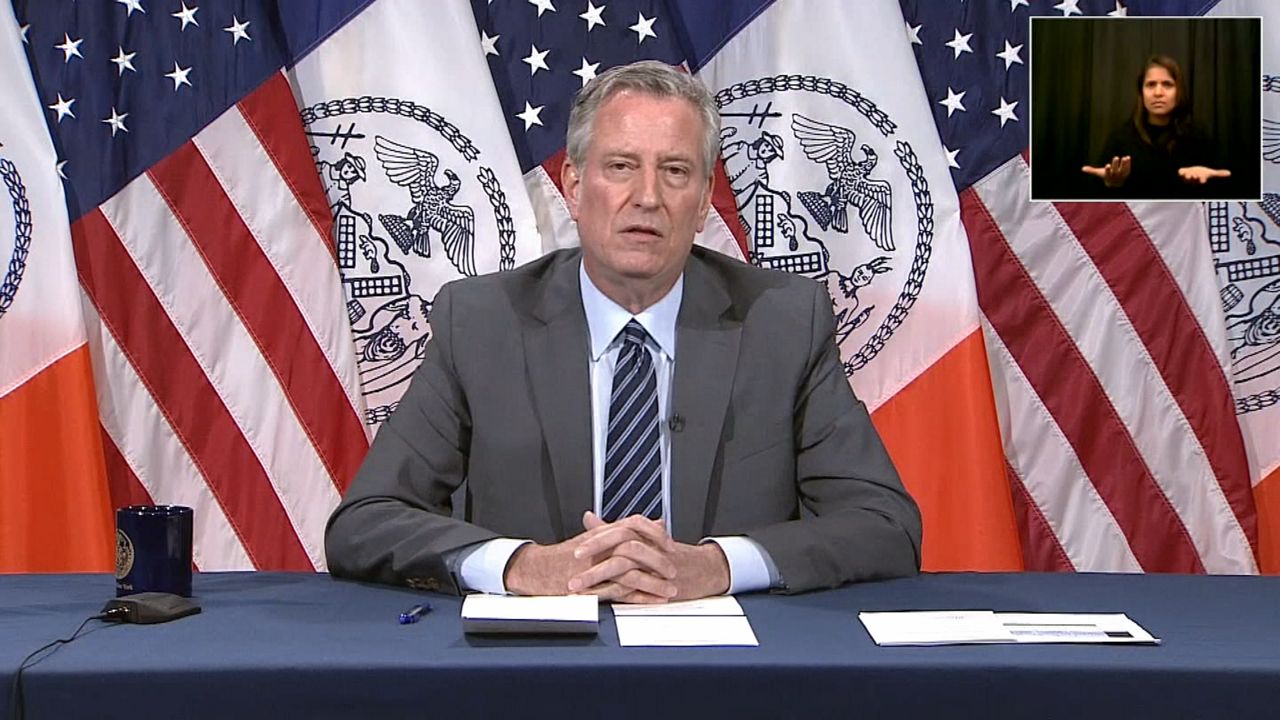Mayor Bill de Blasio is desperate for help.
As the city entered its fifth day of protests over the death of George Floyd, a black man killed by a white Minnesota police officer, Mayor de Blasio pleaded with the city’s community leaders to step up and quell the unrest.
“All the people who actually represent communities, step forward, create peace, own your community,” de Blasio said Tuesday speaking from the City Hall. “Do not let outsiders attack your community. Do not let a violent few attack your community. Do not let criminals attack your community. Stand up. I'll be standing by you.”
For days, mostly peaceful protests have given way to looting incidents, violence, vandalism and destruction of property as the sun has gone down.
Looting began Sunday, with people targeting luxury stores in the SoHo section of Manhattan. It happened again on Monday, this time extending to parts of Midtown and Chelsea, despite a doubling of the police officers on duty and an 11p.m. curfew.
After Monday night’s curfew appeared to have little to no effect to help calm tensions, de Blasio announced he would extend the curfew to the end of the week and start it earlier at 8p.m. The NYPD said more than 700 people were arrested.
“We're going to ensure there are additional NYPD resources where they are needed. We're going to work actively and strategically to stop any disorder,” de Blasio said.
The mayor’s public call for community leaders to step up in a moment of crisis, however, points to a leadership vacuum and a lack of community leadership - a problem critics of the mayor have been highlighting for days.
His decisions amid the crisis have been criticized and lawmakers have spoken out against the curfew. When peaceful protests were met with questionable use of force at the hands of the NYPD, his critics accused him of not being in control.
“This unrest on our streets will not end if new instances of police brutality happen each night,” City Council Speaker Corey Johnson wrote on Twitter. “The mayor and the NYPD need to rethink their entire strategy immediately.”
The moment is also indicative of another reality in the city: there is no clear community leader who speaks for communities of color; the movements for police reform are splintered and demonstrations are organized by a web of several groups that don’t always see eye to eye.
And then there is the issue of the mayor’s lack of allies and validators.
Those who backed to his agenda of police reform and criminal justice when he was first elected where have been left disappointed.
The 2014 assassination of two police officers led to a defining moment in the de Blasio administration: de Blasio and the police unions essentially went to war. Since then the mayor’s relationship with the police and his reform agenda have not been the same.
De Blasio bristled on Tuesday facing questions about his handling of police in recent days.
“I am so sick of these efforts to mischaracterize reality,” de Blasio said. “I saw police officers trying to deal with a very difficult situation. We have not seen a situation like this.”



